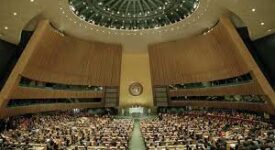The European Union remains deeply concerned about the present stalemate at the Eritrea-Ethiopia boundary between both states. The ongoing violent standoff between Eritrea and Ethiopia is part of the protracted violence in the Horn of Africa that, as Brussels fears, could exacerbate regional instability and have potentially negative implications for international peace, security and international trade, which could also in turn hamper regional cooperation and development. The border conflict, which has been ongoing since the Eritrean-Ethiopian War of 1998-2000, has included multiple clashes ever since.
Eritrea and Ethiopia, both of whom are among the world’s poorest countries, spent hundreds of millions of dollars on the war over the disputed territory of Badme. Both sides suffered tens of thousands of casualties but the direct consequence was only a minor change to the border. An international commission established in The Hague maintains that Eritrea broke international law and triggered the war by invading Ethiopia, which held Badme at the end of the conflict. However, the Eritrea-Ethiopia Boundary Commission (EEBC) holds that the disputed territory belongs to Eritrea, though as of 2017 Ethiopia still occupies it.
The EEBC was established as part of the Algiers peace agreement signed by the leaders of Eritrea, President Isaias Afwerki, and Ethiopia, late Prime Minister Meles Zenawi, in Algiers, Algeria in December 2000. The EU signed the deal as a witness alongside Algeria, the United States of America, the United Nations, and the Organization of African Unity. The EU maintains that both parties have all to gain from a full implementation of the provisions of the EEBC’s decision. Brussels therefore encourages both parties to take concrete steps that could lead towards the final demarcation of the border in accordance with the EEBC ruling and thus begin building constructive and peaceful relations.







